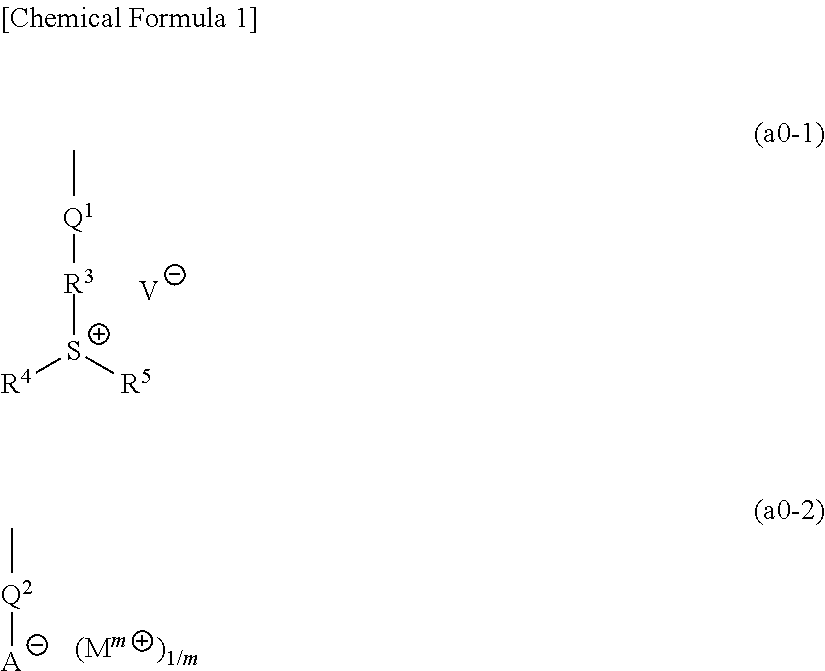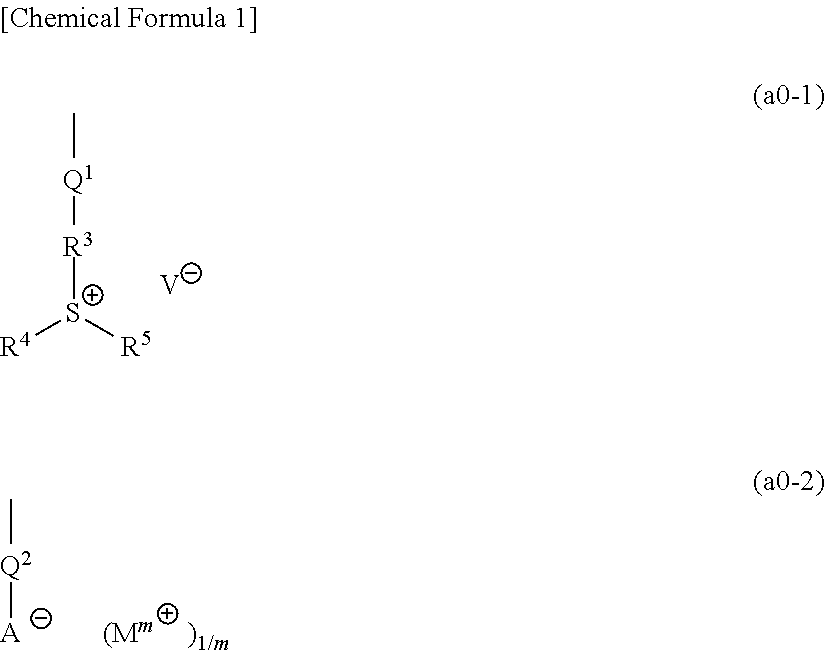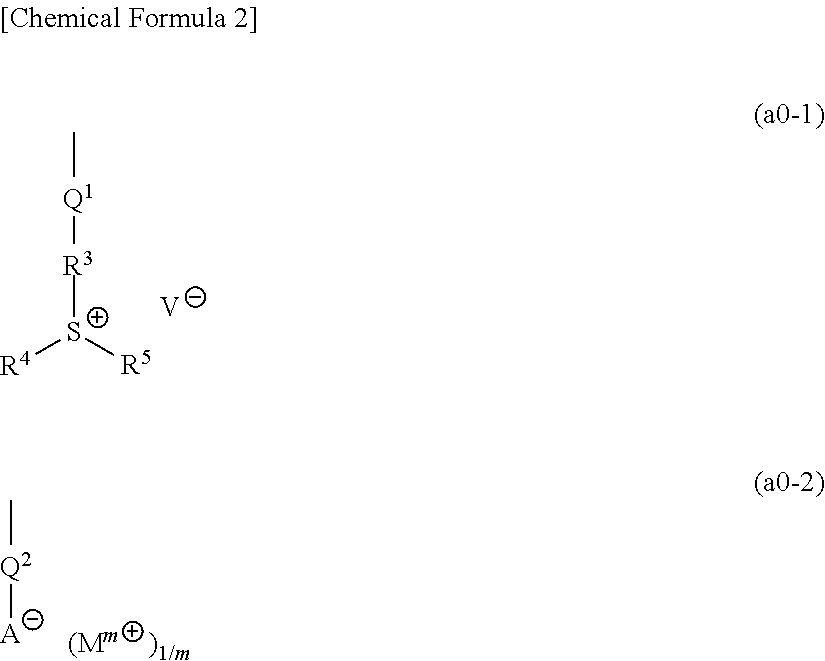Resist composition and method of forming resist pattern
a composition and resist technology, applied in the field of resist can solve the problems of insufficient thermal stability of resist materials in the related art, affecting the shape of resist patterns, and affecting the effect of resist composition composition and resist pattern formation, etc., to achieve excellent lithography properties, excellent euv or eb sensitivity, excellent lithography properties
- Summary
- Abstract
- Description
- Claims
- Application Information
AI Technical Summary
Benefits of technology
Problems solved by technology
Method used
Image
Examples
polymer synthesis example 1
Synthesis of Copolymer 23
[1052]In a separable flask provided with a thermometer, a reflux tube, and a nitrogen feeding tube, 22.46 g (132.0 mmol) of a compound (2a), 17.31 g (66.0 mmol) of a compound (11c), 11.10 g (66.0 mmol) of a compound (12a), and 17.73 g (36.0 mmol) of a compound (0a) were dissolved in 147.76 g of a mixed solution of methyl ethyl ketone / cyclohexanone (MEK / CH). As a polymerization initiator, 27.30 mmol of dimethyl azobisisobutyrate (V-601) was added to and dissolved in the above solution. The resultant was added dropwise to 81.79 g of a MEK / CH mixed solution in a nitrogen atmosphere for 4 hours. Following completion of the dropwise addition, the reaction solution was stirred under heat for one hour, and the reaction solution was then cooled to room temperature. The obtained reaction polymer solution was added dropwise to a large amount of n-heptane to precipitate a polymer, and the precipitated white powder was separated by filtration, washed with methanol, foll...
synthesis example 1
Cation Synthesis Example 1
Synthesis of Compound (c-1)
[1056]In a nitrogen atmosphere, 4.3 g of a compound (5) was dissolved in 21.6 g of acetonitrile, and 2.0 g of heptahydrothiophene was added dropwise thereto, followed by stirring for 12 hours at 25° C. Thereafter, the precipitated white powder was separated and collected by suction filtration, washed with 11.3 g of acetonitrile, and dried under reduced pressure, thereby obtaining 2.9 g of the compound (c-1).
[1057]NMR measurement was performed on this compound, and the structure thereof was identified from the following results.
[1058]1H-NMR (400 MHz, DMSO-d6+D2O): δ (ppm)=5.1 (t, 2H, CH), 4.6 (t, 2H, CH), 4.3 (s, 1H, CH2), 3.9 (m, 3H, CH), 3.6-3.8 (t, 2H, SCH2), 3.4 (t, 2H, CH2), 2.9 (m, 5H, CH), 2.4 (4H, CH), 2.0 (t, 2H, CH2), 1.7-1.9 (m, 3H, CH2CH2), 1.2-1.4 (m, 4H, CH2CH2CH2)
Polymer Synthesis Examples 2 to 51
Synthesis of Copolymers 1 to 22, 24 to 43, and 1′ to 8′
[1059]Copolymers 1 to 22, 24 to 43, and 1′ to 7′ were obtained in t...
PUM
| Property | Measurement | Unit |
|---|---|---|
| Molar ratio | aaaaa | aaaaa |
Abstract
Description
Claims
Application Information
 Login to View More
Login to View More - R&D
- Intellectual Property
- Life Sciences
- Materials
- Tech Scout
- Unparalleled Data Quality
- Higher Quality Content
- 60% Fewer Hallucinations
Browse by: Latest US Patents, China's latest patents, Technical Efficacy Thesaurus, Application Domain, Technology Topic, Popular Technical Reports.
© 2025 PatSnap. All rights reserved.Legal|Privacy policy|Modern Slavery Act Transparency Statement|Sitemap|About US| Contact US: help@patsnap.com



